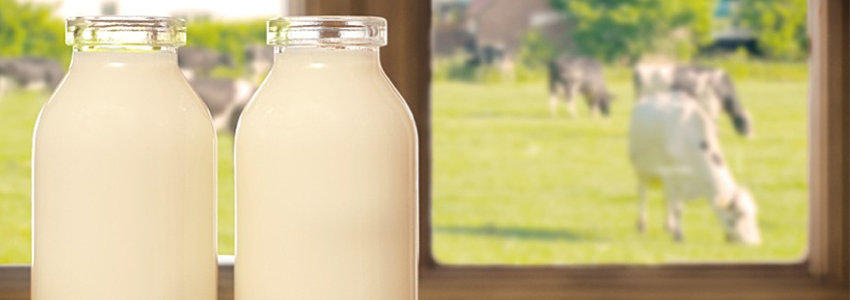Overweight and obese premenopausal women who are on severe diets can now draw hope from the recent findings which show that increasing the proportion of dairy foods in their diet could keep their calorie count low and yet not affect their bone health adversely.
Studies on bone mass conducted several years ago showed that a higher body weight contributed towards greater bone mass and so when persons go on diet to curb weight gain or reduce weight, they compromise their bone health. Though effects of factors such as dairy intake (for calcium and protein) and exercise on bone health were individually studied independent of each other, there were no cases that observed their combined effect on overweight and obese premenopausal women.
Now, a new study conducted by the McMaster University in Hamilton, Ontario has a report which has been accepted for publication in the Endocrine Society’s Journal of Clinical Endocrinology & Metabolism (JCEM) in which it is revealed that intake of dairy foods (all foods derived from cow, goat, domestic buffalo, camel, sheep’s milk) coupled with the consumption of more protein resulted in significant in markers for bone formation (osteoblasts) and reductions in the markers for bone degradation (osteoclasts). The study was conducted over a 16-week period on both overweight and obese women who had not reached menopause but were dieting to control body weight. The study took into account diet- and exercise-induced weight loss. (1)
As per the senior author of the study, Stuart Phillips, PhD, “Our findings show that a diet with a high proportion of dairy foods and higher than recommended protein intake was associated with improved markers for bone health. Thus, to avoid deleterious consequences to their bone health, women who are attempting weight loss through dieting should practice consumption of more protein from dairy sources.” (2)
Examples of dietary foods include butter, cheese (all types), cottage cheese, cream cheese, creamer, eggs, ice cream, milk, ricotta, sour cream, yoghurt (frozen and natural) , whip cream, cultured buttermilk, milk powder, condensed milk, evaporated milk, clarified butter (ghee), quark, whey proteins, puddings and custards. However, those working on their weights choose low fat versions of the dairy products they include in their meals.
The McMaster University research studied 90 premenopausal women who were overweight or obese and performed a controlled randomized weight loss intervention trial which was aimed at achieving weight loss with the condition that the program also be bone health friendly.
Phillips research team varied the protein and dairy food intakes in their studies making only minor reduction in the dietary calorie restriction and a slight change in the daily exercise which included aerobic and resistance training. The research employed dual-energy X-ray absorptiometry (DEXA) scans to assess bone mineral density and content. The participants’ blood samples were also taken to assess their serum levels and urine samples were taken. The results obtained after the analysis of obtained data showed that the consumption of diets higher in protein with an emphasis on dairy foods during a diet and exercise period, positively affected markers of bone turnover, calcium, vitamin D status and bone metabolism in overweight and obese premenopausal women. (3)
SOURCES:
- Dairy Foods May Improve Bone Health During Diet and Exercise in Overweight Premenopausal Women; Science Daily;
November, 2011;
http://www.sciencedaily.com/releases/2011/11/111109093850.htm - Dairy foods may improve bone health during diet and exercise in overweight premenopausal women; ScienceDaily; November, 2011;
https://www.sciencedaily.com/releases/2011/11/111109093850.htm - Foods rich in protein, dairy products help dieters preserve muscle and lose belly fat: study; McMaster University – Daily News;
November, 2011;
http://dailynews.mcmaster.ca/story.cfm?id=8258





Article Comments